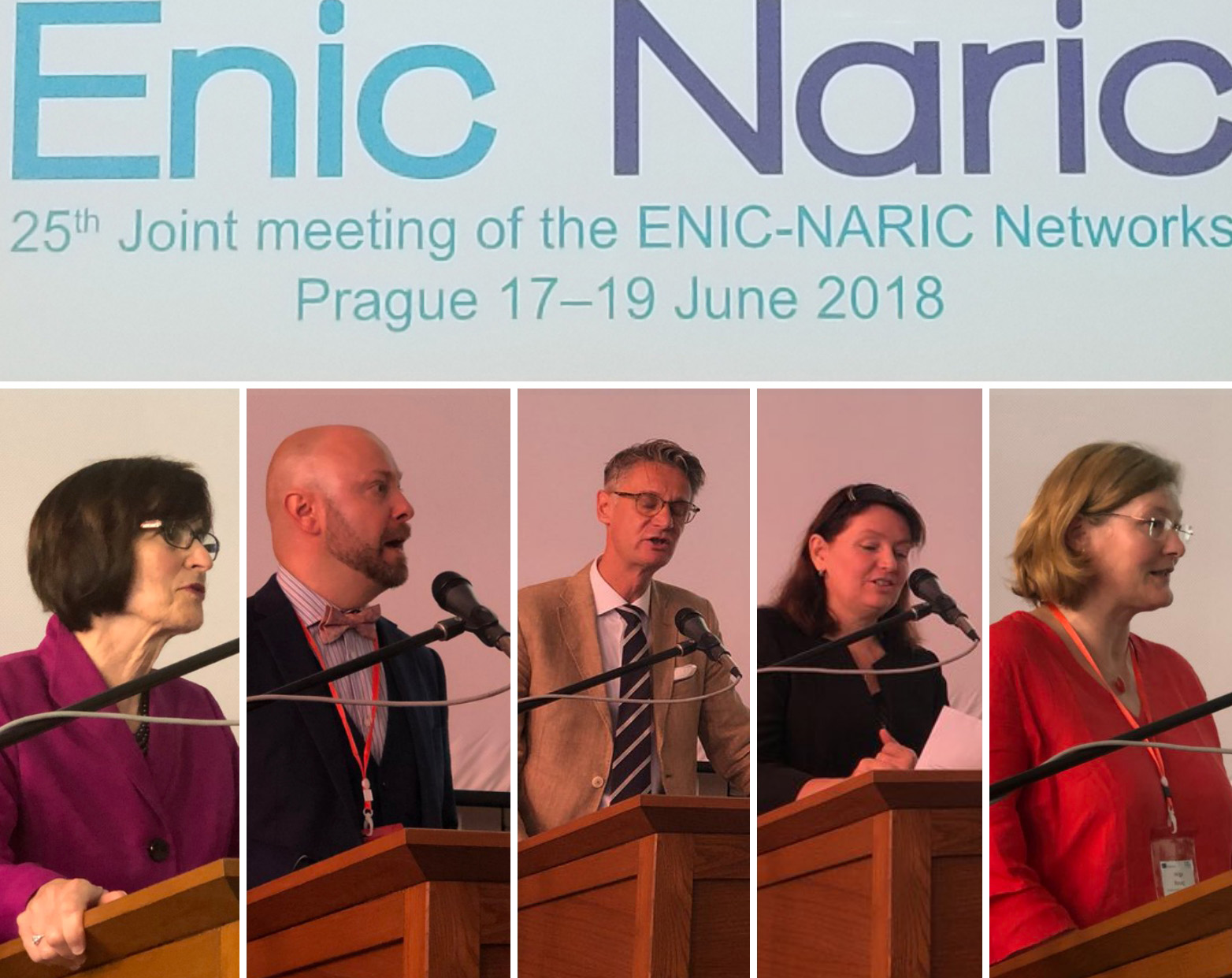AACRAO travels to Prague for ENIC-NARIC meeting
Jul 2, 2018, 13:41 PM
legacy id :
Summary :
Learn more about AACRAO EDGE's role with the EU education networks.
Url :
AACRAO, under the auspices of the EDGE program, engages with Ministries of Education and recognition bodies globally to ensure that our members and subscribers have the most up to date information on the dynamic and ever-changing field of education. One of our major engagements is with the ENIC-NARIC network. (Learn more about ENIC-NARIC and the role of AACRAO EDGE below.)
For the second time, AACRAO participated in the 2018 ENIC-NARIC Conference in Prague, an annual invitation-only meeting of the network to share knowledge and further advance the agenda of student mobility and mutual recognition of education. The invitation to AACRAO is a recognition of our national role in recognition policies in the United States, and AACRAO Deputy Director Melanie Gottlieb attended.
The focus this year in Prague were policies and practices that support mutual and/or automatic recognition of academic credentials and policies and practices that support the recognition of qualification from displaced students and refugees. AACRAO’s relationship with the ENIC-NARIC network directly benefits to EDGE subscribers, providing the most current information available for country profiles. Users will see significant updates in the coming year from the European Higher Education Area.
What is ENIC-NARIC?
The two networks have similar purposes and cooperate very closely, both through the annual meetings and through developing the joint website, which hosts relevant information on systems of higher education as well as contact information of all of the information centres. In June 2004 the two networks adopted the Joint ENIC-NARIC Charter which was approved by the Lisbon Recognition Convention Committee.
The ENIC network (European Network of National Information Centres on academic recognition and mobility), established in 1994 by the Council of Europe and UNESCO, implements the Lisbon Recognition Convention and, in general, develops policy and practice for the recognition of qualifications. The Network is made up of the national information centres of the Parties to the Lisbon Recognition Convention.
While the specific competencies of ENICs may vary, they are set up by a national authority and will generally provide information on:
- the recognition of foreign diplomas, degrees, and other qualifications,
- education systems in both foreign countries and the ENIC’s own country,
- opportunities for studying abroad, including information on loans and scholarships, and
- advice on practical questions related to mobility and equivalence.
The NARIC network (National Academic Recognition Information Centre) was created by the European Commission in 1984 and is similar to the ENIC Network. The network works to improve academic recognition in the Member States of the European Union (EU) countries, the European Economic Area (EEA) countries and Turkey.
The network supports education by providing authoritative advice and information concerning the academic recognition of diplomas and periods of study undertaken in other countries.. The main users of this service are higher education institutions, students and their advisers, parents, teachers and prospective employers. Most centers provide merely advice; some actually provide legally binding decisions.
AACRAO’s role
The United States has no comparable federally-supported structure that provides such information to end users -- a lacuna AACRAO has filled with the EDGE product.
Used by more than 1000 U.S. institutions, as well as US Customs and Immigration, for the purposes of degree placement and recognition, AACRAO EDGE is the closest to a national authority that exists in the United States.
Categories :
- AACRAO EDGE
- Credential Evaluation
- International Admissions
- International Admissions and Credential Evaluation
- International Education
- Recruitment and Marketing
- Study Abroad
